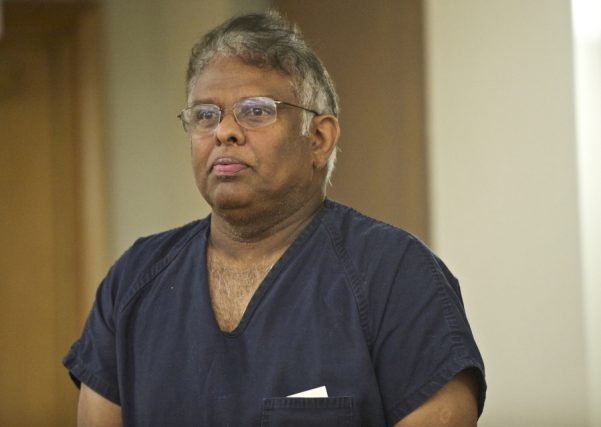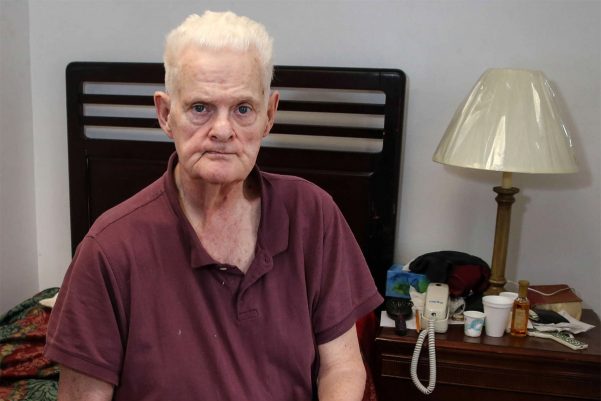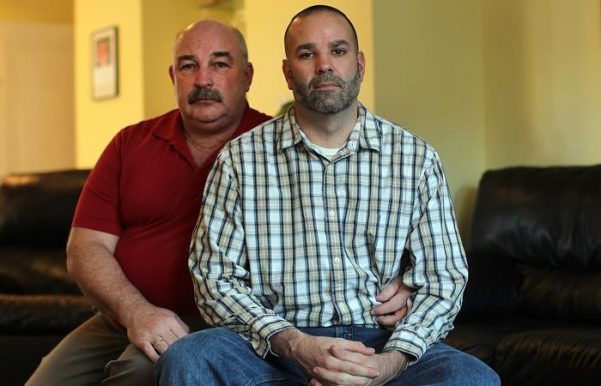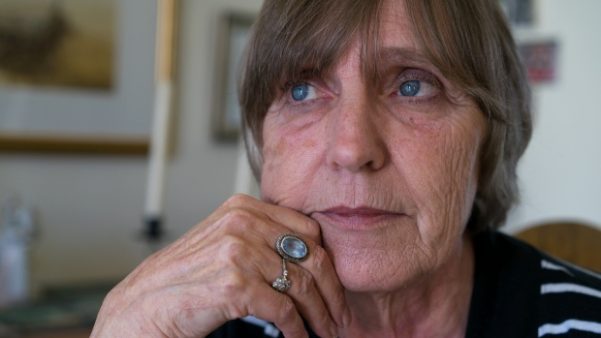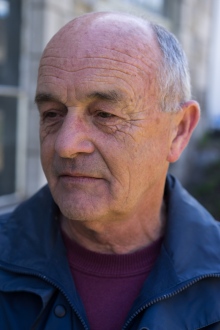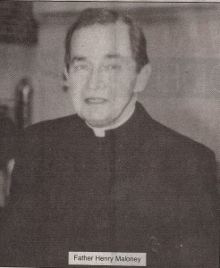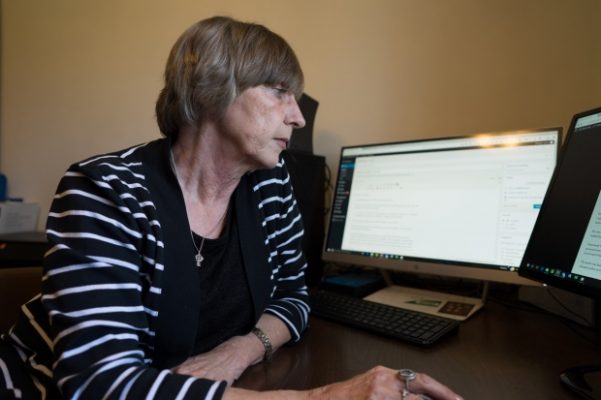In an audience with female religious superiors, the Pope has agreed to back the establishment of a commission to study women deacons in the early Church. Cardinal Carlo Maria Martini proposed such a move back in the 90’s. The Italian diocese of Padua, began experimenting some time ago
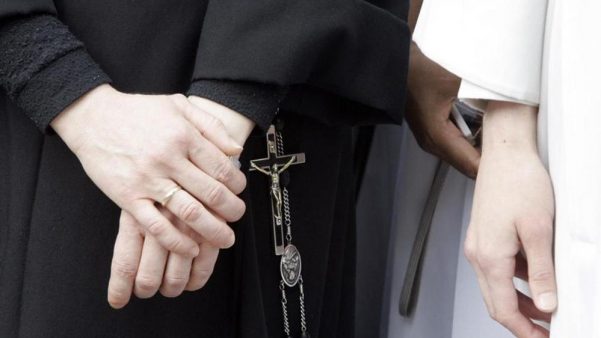
By ANDREA TORNIELLI
Pope Francis has said he wants the study of the female diaconate in the early Church to resume. He talked about this during his audience with the International Union of Superiors General (UISG), whom he received in the Vatican. This is not a new question and was in fact mentioned again recently. After the clear message John Paul II sent out when he reacted to the Anglicans’ open approach by issuing the “Ordinatio Sacerdotalis” letter (1994), categorically rejecting the possibility of ordination for women in the Catholic Church, Cardinal Carlo Maria Martini spoke of the possibility of studying the institution of the female diaconate, which is not mentioned in the papal document. The Archbishop of Milan at the time said: “There have been female deacons in the Church in the past, we could consider this possibility.” Some early Church historians pointed out that women were admitted to a specific diaconal service of charity which differs from today’s concept of the diaconate as the first step towards priesthood.
During the question and answer session that took place during the meeting, the Pope was asked, amongst other things, why the Church excludes women from the diaconate. Women religious told the Pope that women served as deacons in the early Church and asked: “Why not construct an official commission that might study the question?” The Pope responded that he had spoken about the matter once some years ago with a “good, wise professor” who had studied the use of female deacons in the early centuries of the Church. Francis said it remained unclear to him what role such deacons had. “It was a bit obscure,” said Francis. “What was the role of the deaconess in that time?” “Constituting an official commission that might study the question?” the pontiff asked aloud. “I believe yes. It would do good for the church to clarify this point. I am in agreement. I will speak to do something like this.”
“I accept,” the pope said later. “It seems useful to me to have a commission that would clarify this well.”
According to an ancient tradition, deacons were in fact ordained “not to the priesthood but to the ministry”. There is some historical evidence of the presence of female deacons both in the western and eastern Church. This evidence relates also to liturgical ordination rites as well. What needs to be looked into further, is what type of ministerial figures they were, what their roles within the community were. The magisterium considers the diaconate as the first step in the ordained ministry and reserves this function as well as that of the presbyterate and the episcopate to men.
By announcing his approval of the setting up of a study commission on the female diaconate in the early Church, Francis intends to verify whether and how this form of service can be brought up to date, believing that the role of the permanent female deacon could be reinstituted in the modern day. In the early days of Christianity females deacons did exist (St. Paul mentions them) and there is documentary evidence showing that in 3rd century Syria, there were female deacons who assisted the priest with female baptisms. This role is also mentioned in apostolic constitutions dating back to the 4th century, which contain references to a specific ordination rite that differed from the ordination rite reserved for male deacons.
Some forms of female diaconal service have been institutionalised for some time now, as is the case with the diocese of Padua, where said forms of service were introduced by the former bishop Antonio Mattiazzo. Although these women do not wear a religious habit, they have taken vows of obedience, poverty and chastity, meaning they have been consecrated as “diocesan apostolic collaborators”. The northern Italian diocese defined the role and tasks of this new form of service as such: “This form of female diaconal service is inspired by the Gospel. For female apostolic collaborators entering the apostolic diaconate is a life choice that is approved and oriented by the bishops”. One of the tasks of female deacons is to proclaim the Gospel message, educate people about the faith, do charity work for the poor, distribute Holy Communion, enliven the liturgy and manage structures such as schools and institutes.
Pope Francis has spoken on many occasions about the need for the Catholic Church to value the role of women. But he has always avoided presenting this as a form of female “clericalisation”. “I don’t know where this idea sprang from. Women in the Church must be valued not ‘clericalised’. Whoever thinks of women as cardinals suffers a bit from clericalism,” Francis said in an interview with Italian newspaper La Stampa in December 2013, in response to a question about whether the Church would have women cardinals in the future.
In September 2001, the former Prefect of the Congregation for the Doctrine of the Faith, Joseph Ratzinger, along with his “colleagues”, cardinals Medina Estevez (Prefect of the Congregation for Divine Worship) and Castrillón Hoyos (Congregation for the Clergy), signed a brief letter, approved by John Paul II, which stated that “it is not licit to put in place initiatives which in some way aim to prepare female candidates for diaconal ordination”. The text referred to the diaconate as a sacrament and first step towards priesthood.
New studies on the female diaconate in the early Church, on the duties and responsibilities of female deacons compared to those of their male counterparts and on the types of ordination rite, could open up new possibilities and new forms of consecrated service besides the already existing women’s religious orders.
“The Church needs women to become a part of the decision-making process and for them to head up an office in the Vatican,” Pope Francis said, responding to six questions put to him at a meeting with 900 nuns from across the world. Speaking in the Nervi hall, he explained that “the Church should involve lay and consecrated women in consultations but also in decision-making because it needs to hear their point of view. This growing role women are playing within the Church is not feminism but co-responsibility which is a right of all Christians, men and women alike.” Francis also underlined that “too many consecrated females are mediocre women rather than people who engaged in the ministry of service. Consecrated life,” he added, “is a path of poverty, not suicide”.
Complete Article HERE!

